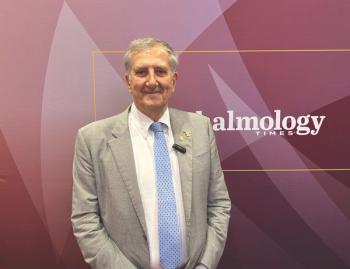
Femtosecond laser refractive cataract surgery: High controversy
An introduction to the controversial technique of using femtosecond lasers for cataract surgery
Periodically, ophthalmology is confronted by new technology and techniques that stimulate intense controversy. Proponents energetically extol the purported advance while skeptics question the costs and benefits. In my career, this began when intraocular lenses (IOLs) were advocated instead of aphakic spectacles and contact lenses; then continued when intracapsular surgery was challenged by extracapsular surgery, and, in turn, phacoemulsification challenged extracapsular techniques; and when microkeratomes and the femtosecond laser went head-to-head for LASIK flap creation.
These, of course, are well known triumphs of technology, although even now, exceptions occur. Other such successes, large and small, abound. But the battlefield of medicine and surgery is littered with the bodies of a much larger number of initially enthusiastically advocated technologies that have been abandoned. "Success has many fathers; failure is an orphan."
Newest controversy
Because my entire career has been defined by lasers, from the Nd-YAG to excimer to femtosecond pulses, I am not very objective. From my standpoint, the truism that "lasers are a solution looking for a problem" remains true. I personally believe that this is true for LASIK flaps, though far from everyone agrees. Is this true for cataracts? Not for several past attempts that were not based in a basic understanding of laser-tissue interaction.
Is this true for the femtosecond laser? I believe that the laser biology makes sense. Time will tell. But experience has been that the technologies that succeed are not only controversial, but evolve considerably. Charles Kelman's original phaco machine was not viable in the long run. Neither were the original Nd-YAG lasers for posterior capsulotomy (how many of you still use the Meditec picosecond laser?) nor the original 5 kHz IntraLase.
The beauty of both capitalism and scientific inquiry is that truth will be defined in an iterative process. Personally, I find the ride to be thrilling. Where will it end? The important question at this point is: "Is this worth exploring?" I say an enthusiastic "Yes".
Dr Roger F. Steinert is chair of Ophthalmology at the Gavin Herbert Eye Institute, University of California, Irvine, California, USA. He can be contacted by Email:
or Tel.: +1 949 824 8089. Dr Steinert is also a consultant to Alcon LenSx and Abbott Medical Optics.
Newsletter
Get the essential updates shaping the future of pharma manufacturing and compliance—subscribe today to Pharmaceutical Technology and never miss a breakthrough.




























